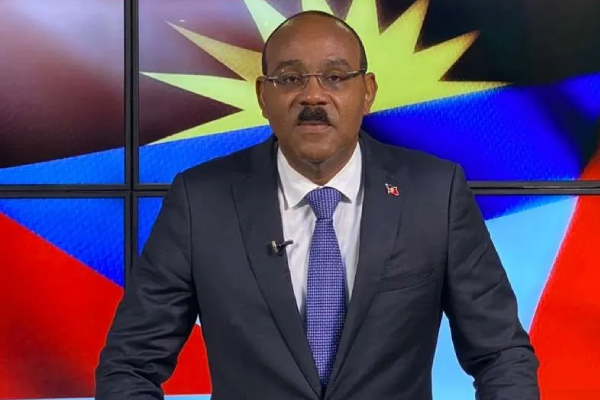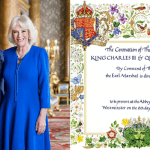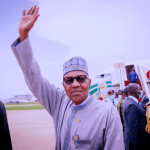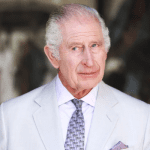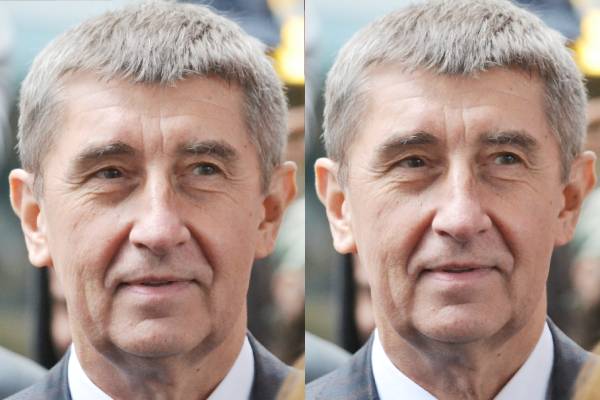Prime minister of Antigua and Barbuda, Gaston Browne, has announced that a referendum on the country’s status as a republic will take place within the next three years.
Gaston Browne made the statement shortly after a local ceremony confirmed Charles III as the country’s king following Queen Elizabeth II’s death.
The nation’s decision would result in the removal of Britain’s new King Charles III as its head of state.
“This is a matter that has to be taken to a referendum … within the next, probably, three years,” Browne said.
He added that becoming a republic was “a final step to complete the circle of independence to ensure we are truly a sovereign nation”, but stressed a referendum was “not an act of hostility” and would not involve retiring Commonwealth membership.
Browne’s pledge comes amid a growing republican push across the Caribbean region, with Barbados voting to remove the UK monarchy last year, and the ruling party in Jamaica having signaled it may follow.
The 100,000-member country obtained independence from Britain in 1981, but it is one of the 15 Commonwealth countries that continue to have the United Kingdom’s monarch as their head of state. The Commonwealth is a political organization made up primarily of former British colonies.
Prime minister of Antigua and Barbuda, Gaston Browne, has announced that a referendum on the country’s status as a republic will take place within the next three years.
Gaston Browne made the statement shortly after a local ceremony confirmed Charles III as the country’s king following Queen Elizabeth II’s death.
The nation’s decision would result in the removal of Britain’s new King Charles III as its head of state.
“This is a matter that has to be taken to a referendum … within the next, probably, three years,” Browne said.
He added that becoming a republic was “a final step to complete the circle of independence to ensure we are truly a sovereign nation”, but stressed a referendum was “not an act of hostility” and would not involve retiring Commonwealth membership.
Browne’s pledge comes amid a growing republican push across the Caribbean region, with Barbados voting to remove the UK monarchy last year, and the ruling party in Jamaica having signaled it may follow.
The 100,000-member country obtained independence from Britain in 1981, but it is one of the 15 Commonwealth countries that continue to have the United Kingdom’s monarch as their head of state. The Commonwealth is a political organization made up primarily of former British colonies.
Prime minister of Antigua and Barbuda, Gaston Browne, has announced that a referendum on the country’s status as a republic will take place within the next three years.
Gaston Browne made the statement shortly after a local ceremony confirmed Charles III as the country’s king following Queen Elizabeth II’s death.
The nation’s decision would result in the removal of Britain’s new King Charles III as its head of state.
“This is a matter that has to be taken to a referendum … within the next, probably, three years,” Browne said.
He added that becoming a republic was “a final step to complete the circle of independence to ensure we are truly a sovereign nation”, but stressed a referendum was “not an act of hostility” and would not involve retiring Commonwealth membership.
Browne’s pledge comes amid a growing republican push across the Caribbean region, with Barbados voting to remove the UK monarchy last year, and the ruling party in Jamaica having signaled it may follow.
The 100,000-member country obtained independence from Britain in 1981, but it is one of the 15 Commonwealth countries that continue to have the United Kingdom’s monarch as their head of state. The Commonwealth is a political organization made up primarily of former British colonies.
Prime minister of Antigua and Barbuda, Gaston Browne, has announced that a referendum on the country’s status as a republic will take place within the next three years.
Gaston Browne made the statement shortly after a local ceremony confirmed Charles III as the country’s king following Queen Elizabeth II’s death.
The nation’s decision would result in the removal of Britain’s new King Charles III as its head of state.
“This is a matter that has to be taken to a referendum … within the next, probably, three years,” Browne said.
He added that becoming a republic was “a final step to complete the circle of independence to ensure we are truly a sovereign nation”, but stressed a referendum was “not an act of hostility” and would not involve retiring Commonwealth membership.
Browne’s pledge comes amid a growing republican push across the Caribbean region, with Barbados voting to remove the UK monarchy last year, and the ruling party in Jamaica having signaled it may follow.
The 100,000-member country obtained independence from Britain in 1981, but it is one of the 15 Commonwealth countries that continue to have the United Kingdom’s monarch as their head of state. The Commonwealth is a political organization made up primarily of former British colonies.
Prime minister of Antigua and Barbuda, Gaston Browne, has announced that a referendum on the country’s status as a republic will take place within the next three years.
Gaston Browne made the statement shortly after a local ceremony confirmed Charles III as the country’s king following Queen Elizabeth II’s death.
The nation’s decision would result in the removal of Britain’s new King Charles III as its head of state.
“This is a matter that has to be taken to a referendum … within the next, probably, three years,” Browne said.
He added that becoming a republic was “a final step to complete the circle of independence to ensure we are truly a sovereign nation”, but stressed a referendum was “not an act of hostility” and would not involve retiring Commonwealth membership.
Browne’s pledge comes amid a growing republican push across the Caribbean region, with Barbados voting to remove the UK monarchy last year, and the ruling party in Jamaica having signaled it may follow.
The 100,000-member country obtained independence from Britain in 1981, but it is one of the 15 Commonwealth countries that continue to have the United Kingdom’s monarch as their head of state. The Commonwealth is a political organization made up primarily of former British colonies.
Prime minister of Antigua and Barbuda, Gaston Browne, has announced that a referendum on the country’s status as a republic will take place within the next three years.
Gaston Browne made the statement shortly after a local ceremony confirmed Charles III as the country’s king following Queen Elizabeth II’s death.
The nation’s decision would result in the removal of Britain’s new King Charles III as its head of state.
“This is a matter that has to be taken to a referendum … within the next, probably, three years,” Browne said.
He added that becoming a republic was “a final step to complete the circle of independence to ensure we are truly a sovereign nation”, but stressed a referendum was “not an act of hostility” and would not involve retiring Commonwealth membership.
Browne’s pledge comes amid a growing republican push across the Caribbean region, with Barbados voting to remove the UK monarchy last year, and the ruling party in Jamaica having signaled it may follow.
The 100,000-member country obtained independence from Britain in 1981, but it is one of the 15 Commonwealth countries that continue to have the United Kingdom’s monarch as their head of state. The Commonwealth is a political organization made up primarily of former British colonies.
Prime minister of Antigua and Barbuda, Gaston Browne, has announced that a referendum on the country’s status as a republic will take place within the next three years.
Gaston Browne made the statement shortly after a local ceremony confirmed Charles III as the country’s king following Queen Elizabeth II’s death.
The nation’s decision would result in the removal of Britain’s new King Charles III as its head of state.
“This is a matter that has to be taken to a referendum … within the next, probably, three years,” Browne said.
He added that becoming a republic was “a final step to complete the circle of independence to ensure we are truly a sovereign nation”, but stressed a referendum was “not an act of hostility” and would not involve retiring Commonwealth membership.
Browne’s pledge comes amid a growing republican push across the Caribbean region, with Barbados voting to remove the UK monarchy last year, and the ruling party in Jamaica having signaled it may follow.
The 100,000-member country obtained independence from Britain in 1981, but it is one of the 15 Commonwealth countries that continue to have the United Kingdom’s monarch as their head of state. The Commonwealth is a political organization made up primarily of former British colonies.
Prime minister of Antigua and Barbuda, Gaston Browne, has announced that a referendum on the country’s status as a republic will take place within the next three years.
Gaston Browne made the statement shortly after a local ceremony confirmed Charles III as the country’s king following Queen Elizabeth II’s death.
The nation’s decision would result in the removal of Britain’s new King Charles III as its head of state.
“This is a matter that has to be taken to a referendum … within the next, probably, three years,” Browne said.
He added that becoming a republic was “a final step to complete the circle of independence to ensure we are truly a sovereign nation”, but stressed a referendum was “not an act of hostility” and would not involve retiring Commonwealth membership.
Browne’s pledge comes amid a growing republican push across the Caribbean region, with Barbados voting to remove the UK monarchy last year, and the ruling party in Jamaica having signaled it may follow.
The 100,000-member country obtained independence from Britain in 1981, but it is one of the 15 Commonwealth countries that continue to have the United Kingdom’s monarch as their head of state. The Commonwealth is a political organization made up primarily of former British colonies.

